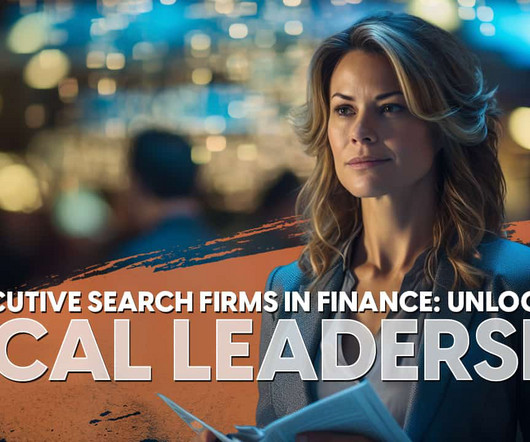Executive Search Firms in Finance: Unlocking Fiscal Leadership
N2Growth Blog
OCTOBER 24, 2023
Every organization has unique dynamics and strategic goals, from investment banks to hedge funds and private equity firms. From regulatory changes to technological advancements, staying abreast of these developments is crucial for both finance organizations and executive search firms.

























Let's personalize your content